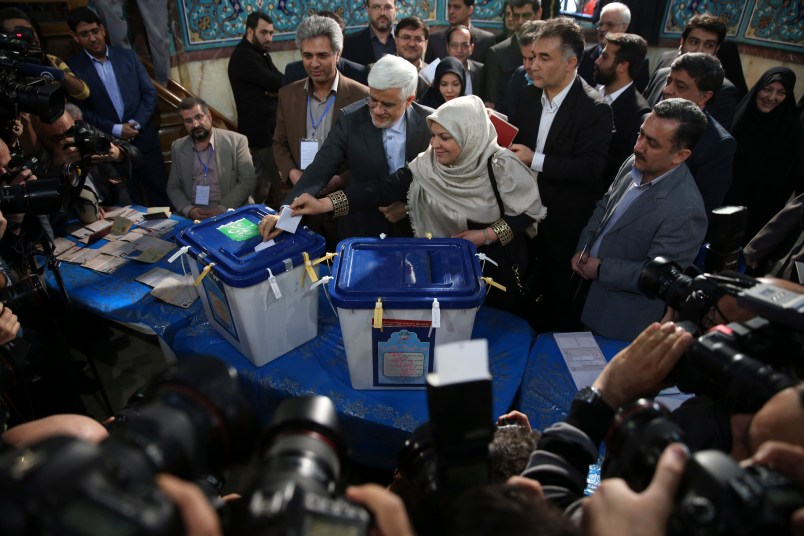TEHRAN, Iran (AP) — Iranian moderates have won a majority in parliament and a top clerical body charged with selecting the next supreme leader, dealing a major blow to hard-liners in the first elections held since last summer’s landmark nuclear agreement with world powers.
Final results released by the Interior Ministry and broadcast on state TV show that reformists, who favor expanded social freedoms and engagement with the West, won at least 85 seats. Moderate conservatives, who also supported the nuclear agreement, won 73, giving the two camps a majority in the 290-seat assembly.
Hard-liners, who had opposed the deal, won just 68 seats, down from more than 100 in the current parliament. Five seats will go to religious minorities, and the remaining 59 will be decided in a runoff, likely to be held in April.
Interior Minister Abdolreza Rahmani Fazli said turnout was 62 percent.
Moderates also won a 59 percent majority in the Assembly of Experts, an 88-member body which will choose the successor to Ayatollah Ali Khamenei, who has been Iran’s top decision-maker since 1989. The 76-year-old underwent prostate surgery in 2014.
President Hassan Rouhani and former President Akbar Hashemi Rafsanjani, both considered moderates, retained their seats in the assembly, according to the Interior Ministry. However, several prominent hard-liners, including Ayatollah Ahmad Jannati, have also been re-elected.
Jannati is also the leader of the Guardian Council, an unelected, constitutional watchdog that vets election candidates. He has been a leading opponent of democratic reforms and has pressed for the disqualification of reformist candidates. Out of 3,000 reformists who applied to run in this year’s elections, just 200 made it through the vetting process.
The Assembly of Experts is elected every eight years. Moderates previously held around 20 seats in the assembly.
Copyright 2016 The Associated Press. All rights reserved. This material may not be published, broadcast, rewritten or redistributed.







Seems like good news. Let’s hope it continues.
See? The RWNJ’s were right! We should have started carpet-bombing Iran months ago, instead of brokering a compromise. Things would have turned out so much better than this catastrophe!!!
What’s that you say?
Thanks, Obama.
This is NOT excellent news…
FOR JOHN MCCAIN !!!
Incremental yet welcome progress for the Iranian people and the world.